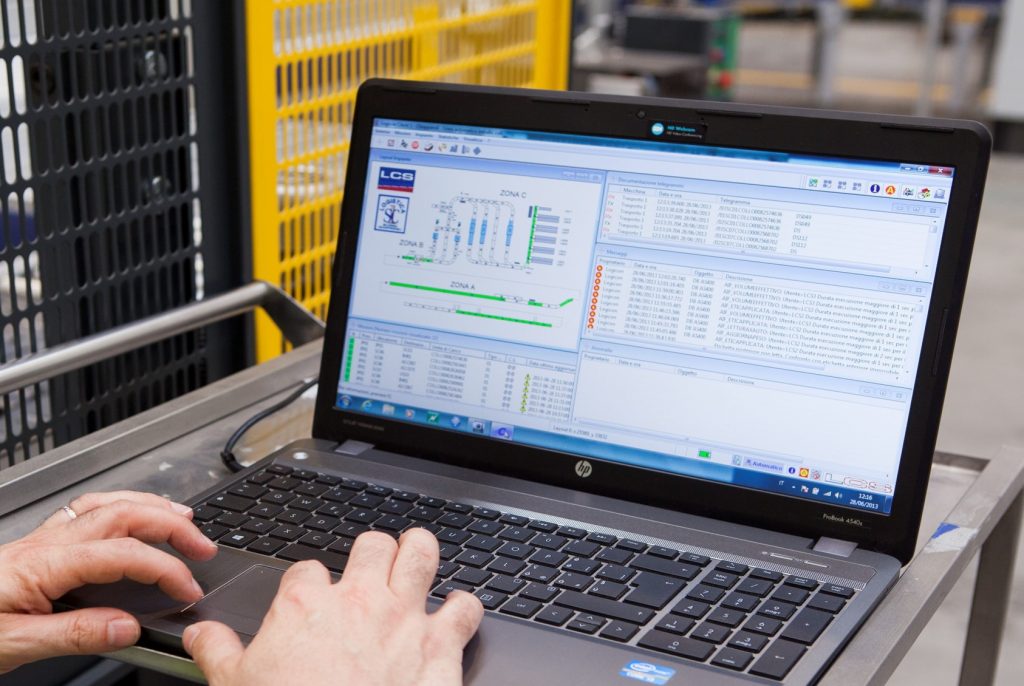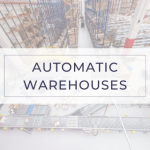When we talk about logistics 4.0 we refer to the changes that the fourth industrial revolution determines in the sector, improving warehouse management by virtue of innovative systems for programming, transport, handling and storage of goods.
The importance of logistics 4.0 for automation is explained by the growth in the level of decision-making autonomy of the machines, which is possible thanks to the data available at a decentralized level, while low added value activities – which tend to be repetitive – are automated.
The advantages that derive from logistics 4.0 involve the entire production process, and therefore concern the various areas of the sector: warehouse management, but also intralogistics and distribution logistics.
It is clear that a higher level of efficiency and speed for logistics is destined to have positive effects on the entire production, also because it involves greater effectiveness in the management of raw materials and semi-finished products.
Streghts of Logistics 4.0
In recent times, omnichannel has proved to be an increasingly strong trend, with an evident change in consumer purchasing habits.
With logistics 4.0, market trends and new management models must adapt to the changing behavior of customers, who not only move quickly between the various sales channels, but want to take advantage of an integrated experience and no longer compartmentalized ponds.
Omnichannel requires a constant interweaving of logistics and technology for perfect integration between the sales channels. It concerns the delivery service, which corresponds to the methods by which the goods are delivered to the end customer. But logistic digitalization, which cannot fail to pass through software for warehouses (automatic / manual), also affects the areas of the fulfillment strategy and distribution setting: in other words, on the physical preparation of orders and on the transport services that are adopted.
All this involves more effective predictive analyzes that allow you to count on better management of the entire plant and products. For example, it is possible to calculate the probabilities of non-delivery or in any case of delay due to adverse weather conditions or the intrinsic complexity of certain geographical areas. Thus, from these predictive analyzes it is possible to design emergency plans or alternative solutions.
More generally, then, real-time analyzes make it possible to identify the delivery routes to be privileged in order to deal with possible unforeseen events.

Advantages for the warehouse management
The benefits that derive from logistics 4.0 for warehouse management are many, but it is especially on three of these that it is worth focusing attention: the speeding up of the process, the connection between all devices and the possibilities of automation.
Speeding up the process translates into faster delivery times. But how is this possible? Data analysis makes it possible to make forecasts characterized by a higher level of precision: the operational phases are adapted accordingly, just as the characteristics of the products adapt to the behaviors and needs of consumers. This is even more true in retail, a sector in which most codes are represented by products with a high turnover rate: it means that even a slight fluctuation in demand can lead to slower delivery times.
The connection between all devices also helps to optimize supply chain times. If before logistics 4.0, data acquisition took place mainly with manual methods, the changes made allow for more efficient and faster detection thanks to the use of RFID technologies and the use of smart devices equipped with sensors. It is a complete logistical innovation, as a result of which storage and transport resources have the ability to exchange information.
Finally, the automation possibilities multiply. Also from this point of view, the evolution compared to the past is remarkable: the physical automation that characterized the previous logistics solutions gives way to hybrid and full automation of today: hybrid when it combines manual and automatic activities, full when it’s complete.
An opportunity not to be underestimated is offered by digital transformation, provided that a conscious approach is adopted, such as to guarantee the desired results. The ability to exploit the predictive capacity, especially in those contexts that require the application of the just in time model, allows for business growth related to the ability to anticipate customer needs.
What the LCS software allows you to do
The software developed by LCS makes it possible to efficiently manage and govern with the utmost ease even the most complex automatic intralogistics systems, characterized by a great variety of handling and storage configurations. The solutions proposed by LCS are intended for automatic and manual warehouses, as well as for material handling systems, ensuring complete integration of all levels of WMS, WCS and PLC.
Not only that: the interfaces are intuitive and easy to use; LogiMHS, which is the modular solution developed for material handling and management, boasts considerable scalability, as well as multiple specialized modules and numerous customization opportunities.
Contact LCS to find out more and know in detail all the benefits offered by these solutions for warehouse logistics!



